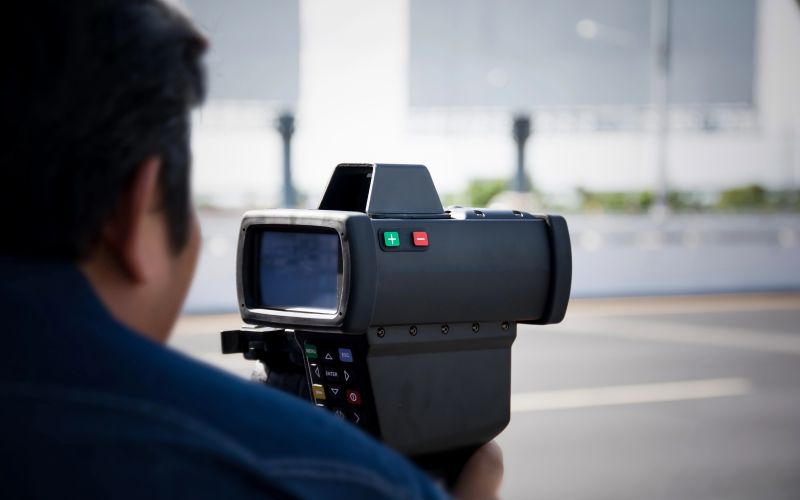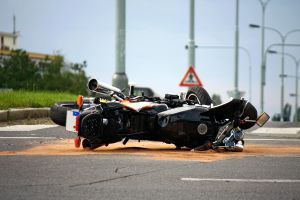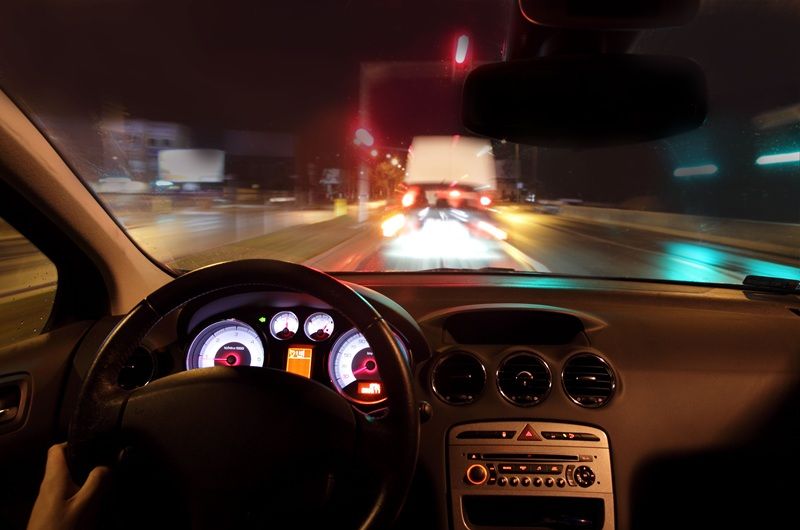In Virginia, not all traffic violations are treated equally. Some, like failing to yield or running a red light, are considered civil infractions with relatively minor consequences. Others, such as reckless driving cross the line into criminal territory, carrying the potential for fines, license suspension, or even jail time.
Understanding where your offense falls on this legal spectrum is essential. A basic speeding ticket might only result in a fine and a few demerit points. But if your speed exceeds certain thresholds or your driving endangers others, you could be charged with reckless driving.
Here you’ll explore the key differences between reckless driving and speeding tickets. You will also discover how other traffic violations are classified and the ways a reckless driving attorney in Fairfax County can help protect your rights and future. By learning the distinctions, you can avoid unintended legal consequences and make informed choices when facing a violation.
Reckless Driving In VA – What You Need To Know
Reckless driving in Virginia is a criminal offense that carries serious consequences. A conviction can result in hefty fines, a suspended license, and even jail time. Knowing what qualifies as a crime and the penalties that come with it can help you make informed decisions about your case.
Types Of Reckless Driving
This offense includes a range of dangerous behaviors that put others at risk. In the state, it means driving in a way that endangers life, limb, or property. Some violations are based on speed, while others involve unsafe maneuvers. Common types include:
- Excessive Speeding – Driving 20 mph over the limit or exceeding 85 mph anywhere in Virginia.
- Driving Too Fast for Conditions – Speeding in fog, rain, snow, or heavy traffic, even if within the posted limit.
- Failure to Maintain Control – Operating a vehicle with faulty brakes or driving in a way that leads to loss of control.
- Unsafe Passing – Passing on curves, hills, or intersections where visibility is limited.
- Failing to Yield Right-of-Way – Ignoring traffic rules at stop signs, crosswalks, or intersections.
- Racing – Engaging in speed contests on public roads.
Regardless of the type, reckless driving involves behaviors that can lead to criminal charges and penalties. Virginia law treats it as a serious offense, making it essential to understand what consequences may follow.
Legal Penalties
A reckless driving conviction in Virginia comes with more than just fines. It is a Class 1 misdemeanor, carrying severe legal and personal consequences. The penalties depend on the circumstances, including:
- Fines up to $2,500 – The amount varies based on factors such as speed, location, and prior offenses (Virginia Code § 46.2-868).
- Jail time up to 12 months – Judges may impose jail sentences for excessive speed or dangerous driving behaviors.
- License suspension for up to six months – You could lose your driving privileges, making daily travel difficult (Virginia Code § 46.2-393).
Reckless driving is not just a traffic violation, it is a serious offense with long-term effects. Taking action early can help you reduce the penalties and protect your driving record.
Driving Record
A reckless driving conviction can stay on your Virginia driving record for up to 11 years, affecting various aspects of your daily life. The six demerit points assigned by the DMV may also contribute to higher insurance rates and could lead to license suspension if additional violations occur.
Insurance companies may consider reckless driving a high-risk offense, which can result in increased premiums or, in some cases, policy cancellation. Understanding these potential effects can help you anticipate the high stakes involved.
Criminal Record
Since the charge is a criminal offense, it appears on background checks. It can affect job opportunities, housing applications, and security clearances, depending on the policies of employers or agencies. Moreover, expungement, or removing a criminal record from public view, is only possible if the court dismisses the case or rules a not-guilty verdict.
However, not all traffic infractions result in reckless driving charges. Some violations may qualify as speeding tickets, carrying more lenient punishments, and avoiding harsh consequences. Understanding where your situation falls within Virginia law can help you determine the next steps to take.
How Reckless Driving Differs From Speeding Tickets
Speeding in Virginia involves driving faster than the posted speed limit or too fast for the road or traffic conditions. It is considered a traffic infraction, not a criminal offense, which means it’s handled as a civil matter. If you’re cited for speeding, you may face:
- A fine typically ranging from $6 to $8 per mile over the speed limit.
- Court costs and administrative fees.
- Demerit points on your driving record (usually 3 to 6, depending on the speed).
- Possible increases in your car insurance premiums.
Unlike reckless driving, a speeding ticket will not result in jail time or a criminal record. That key distinction makes speeding a much less severe offense under Virginia law. However, if you’re driving more than 20 mph over the limit or over 85 mph, the charge can be elevated to reckless driving, which is a criminal misdemeanor.
Other Traffic Infractions & Where They Fall
Not every mistake behind the wheel leads to a criminal charge. In Virginia, many common traffic violations are considered civil infractions, meaning they carry penalties but don’t result in a criminal record. Some examples of these offenses are:
- Running a red light.
- Failing to yield.
- Making an illegal U-turn.
- Rolling through a stop sign.
- Driving with an expired registration or inspection.
These infractions can result in a fine, court fees, and DMV demerit points. While they can affect your driving record and insurance rates, they don’t carry the same weight or consequences as a reckless driving charge. Reckless driving stands out because it’s not just a traffic issue it’s a criminal matter.
Aside from these differences, Virginia’s traffic laws can be confusing, especially for first-time offenders. Reviewing common questions about reckless driving and speeding tickets may help clarify what to expect and how to handle your case.
Answering FAQs About Reckless Driving
The state’s driving laws carry legal nuances, which can be confusing. Some drivers have questions about how these offenses impact them or the legalities involved. Below are answers to common concerns that may help clarify what to expect if you’re facing a reckless driving charge.
What Are The Common Defenses Against The Charge?
You can challenge a reckless driving charge in court, depending on the facts of your case. Certain legal defenses may help reduce or dismiss the charge, especially if the evidence lacks accuracy or reliability. Below are some effective strategies:
- Faulty Speed Measurement – Law enforcement may use radar, LIDAR, or pacing methods, which can produce inaccurate speed readings. Challenging these methods can weaken the prosecution’s case.
- Emergency Situations – If you sped or drove unsafely to avoid immediate harm, you may argue that the situation required quick action.
- Improper Signage – If speed limit signs were missing, damaged, or unclear, argue that you had no fair warning of the legal speed limit.
- Mistaken Identity – Officers may misidentify your vehicle as the one committing the offense, especially in heavy traffic or poor visibility.
Every case is different, and the best defense depends on the evidence and circumstances. Preparing a strong defense takes strategy, and working with an experienced criminal defense lawyer may improve your chances of a better outcome.
What Are The Common Pitfalls To Avoid When Facing Reckless Driving?
Certain missteps can make handling a reckless driving charge more difficult. For instance, missing a court date may lead to additional penalties or even a warrant. Moreover, pleading guilty without reviewing legal options might result in consequences that could have been reduced.
In addition, speaking to law enforcement without understanding the legal process can also present challenges, as statements may be used in court. Taking proactive steps can help reduce penalties and protect your record. Exploring legal options and understanding the potential outcomes can lead to a more favorable resolution.
How Can Attorneys Support Drivers Facing The Charge?
Attorneys are your legal advocates. They can challenge the evidence, question law enforcement’s speed measurement methods, and negotiate for reduced charges. Additionally, they can represent drivers in court, argue for lighter penalties, and help avoid license suspensions or jail time.
Hiring the right lawyer can make a significant difference in the outcome of a case. An experienced attorney understands Virginia’s reckless driving laws and knows how to build a strong defense tailored to your situation.
How Fairfax County Criminal Attorneys Defends Drivers
Reckless driving is a criminal violation that carries serious penalties, including fines, license suspension, and possible jail time. At Fairfax County Criminal Attorneys, we understand the high stakes involved and provide experienced, strategic defense for drivers facing these serious charges in Virginia. Our team works to challenge evidence, negotiate penalties, and seek reduced charges, such as improper driving, whenever possible.
Every case receives a personalized legal strategy based on its specific facts. We’re committed to helping you avoid common pitfalls, minimize long-term consequences, and protect your future opportunities. Drivers can trust our firm for dedicated representation and a strong courtroom defense. Contact us today for a consultation together, we can work toward a more favorable outcome.






